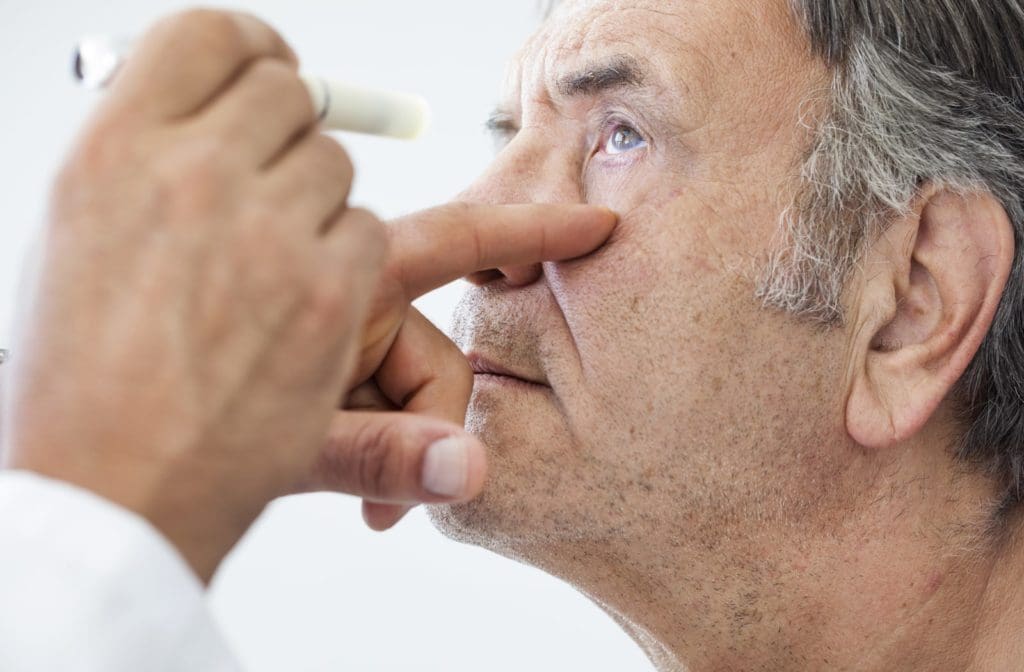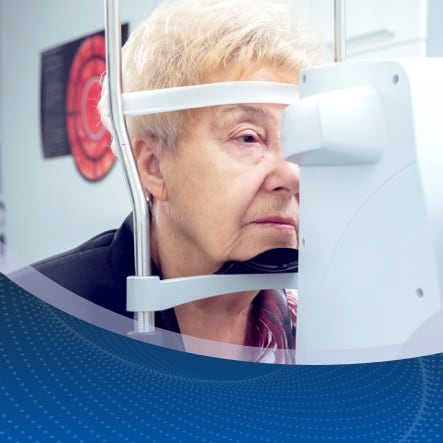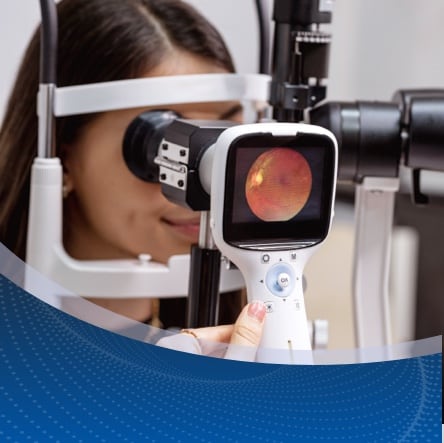Monitoring your eye health is a daily commitment, especially when dealing with something like cataracts. Getting treatment for cataracts from your eye doctor is an essential step, but what comes after?
Let’s look at what cataracts are and what can cause them, including if they can come back after being removed.
What are Cataracts?
A cataract is a clouding of your eye’s naturally clear lens. Your lens focuses light rays on the retina and produces a sharp image for us to see. When this lens becomes cloudy, the light rays cannot pass through, and your vision becomes blurred.
A cataract develops slowly and eventually interferes with your vision. While you may end up with cataracts in both eyes, they don’t always form simultaneously. Cataracts can be why your prescription glasses no longer work, and cataract surgery is the only option.
Some Common Symptoms of Cataracts Include:
- Blurry vision
- Trouble seeing at night
- Increased sensitivity to glare
- Halos surrounding lights
- A need for frequent changes in prescription glasses
Cataracts don’t occur overnight and are a gradual process that is interconnected with the aging process. However, there are risk factors associated with cataract development.
Some Risk Factors Associated with Cataracts Include:
- Older age
- Heavy alcohol use
- Smoking
- Obesity
- High blood pressure
- Previous eye injuries
- A family history of cataracts
- Too much sun exposure
Monitoring risk factors can help fight against the development of cataracts. As with any eye care issue, maintaining proper eye health practices and consistent check-ups can help with overall eye health.
How is Cataract Treated?
A cataract may not require treatment if your vision is only slightly blurry—you may just need an updated prescription. There are no medications, eye drops, or exercises that can get rid of cataracts or prevent them from forming.
If your cataracts begin interfering with your vision and prevent you from performing any daily activities like reading or driving, surgery is the only option to get rid of cataracts.
The good news is with the advances in cataract surgery—the process is very efficient and safe. Your eye doctor will remove the cloudy lens from your eye through a small surgical incision during your surgery. In most cases, the natural lens is replaced with a permanent intraocular lens implant.
Prior to your surgery, your eye doctor will perform a comprehensive eye examination to measure the proper power of the intraocular lens that will be placed in your eye. Your eye doctor will also discuss your lens options and give you instructions for post-operative recovery.
Can Cataracts Come Back Once Removed?
Cataracts cannot come back after they have been removed following a successful surgery.
Cataract surgery involves removing your natural lens to place an artificial intraocular lens that remains transparent. With the absence of a natural lens, a cataract cannot return.
Although it can feel like your cataract is coming back, this can often be the development of a secondary cataract. A secondary cataract occurs when the natural capsule in the eye which holds your new artificial lens in place becomes clouded.
The Symptoms of a Cloudy Capsule are Similar to a Cataract and Can Include:
- Reduced visual clarity
- Glare
- Reduced contrast sensitivity
- Difficulty reading
A secondary cataract can appear due to leftover microscopic lens cells from your previous cataract surgery. These leftover cells can begin to grow and form scar tissue that may eventually cover the capsule.
Treating a secondary cataract involves consulting your ophthalmologist and opting for a YAG laser capsulotomy procedure. This procedure is quick, and the laser will create an opening in the capsule so light can once again reach your retina.
Risks of YAG Laser Capsulotomy
The good news is that posterior capsular opacification can be treated quickly with a YAG laser capsulotomy, a painless laser procedure. This laser treatment restores clear vision by opening the cloudy capsule. While YAG laser capsulotomy is generally very safe and effective, it’s important to be aware of potential risks and side effects:
- Rise in eye pressure: Some patients experience a temporary spike in intraocular pressure shortly after the laser treatment. Your doctor will usually check your eye pressure after the procedure and may prescribe pressure-lowering eye drops as a precaution.
- Retinal detachment: In rare cases, the laser can lead to a tear in the retina that could cause a retinal detachment. This complication is uncommon, but if it occurs it is serious and requires prompt surgical treatment. (The chance of retinal detachment after a YAG procedure is low—roughly around 1 in 100 to 1 in 500.)
- Inflammation or swelling: The laser may cause mild inflammation inside the eye (uveitis) or slight swelling in the retina (macular edema). These issues are typically temporary and can be managed with anti-inflammatory eye drops if they occur.
- New floaters: It’s not unusual to notice some floaters (tiny specks or cobweb-like shadows) in your vision after the procedure. These are usually harmless and tend to fade over a few days. However, if you suddenly see a shower of floaters or flashes of light, contact your eye doctor immediately, as that could be a sign of a retinal tear.
- Lens damage (very rare): In extremely uncommon instances, the laser could cause small pits on the surface of the intraocular lens implant. Your surgeon takes precautions to avoid this, and such minor lens marks typically do not affect vision.
Overall, serious complications from a YAG capsulotomy are uncommon. Your ophthalmologist will recommend this procedure only when the benefits (clearer vision) outweigh the risks. They also take steps during and after the treatment—such as using the appropriate laser settings and scheduling a follow-up exam—to ensure your eye heals well and your vision improves safely.
Cataracts Outlook
Cataract surgery is an excellent option to deal with and manage cataracts with a proven success rate. You can rest easy knowing cataracts cannot return following surgery—however, secondary cataracts can develop. Book an appointment with your eye doctor for more information and get your cataract surgery today.













